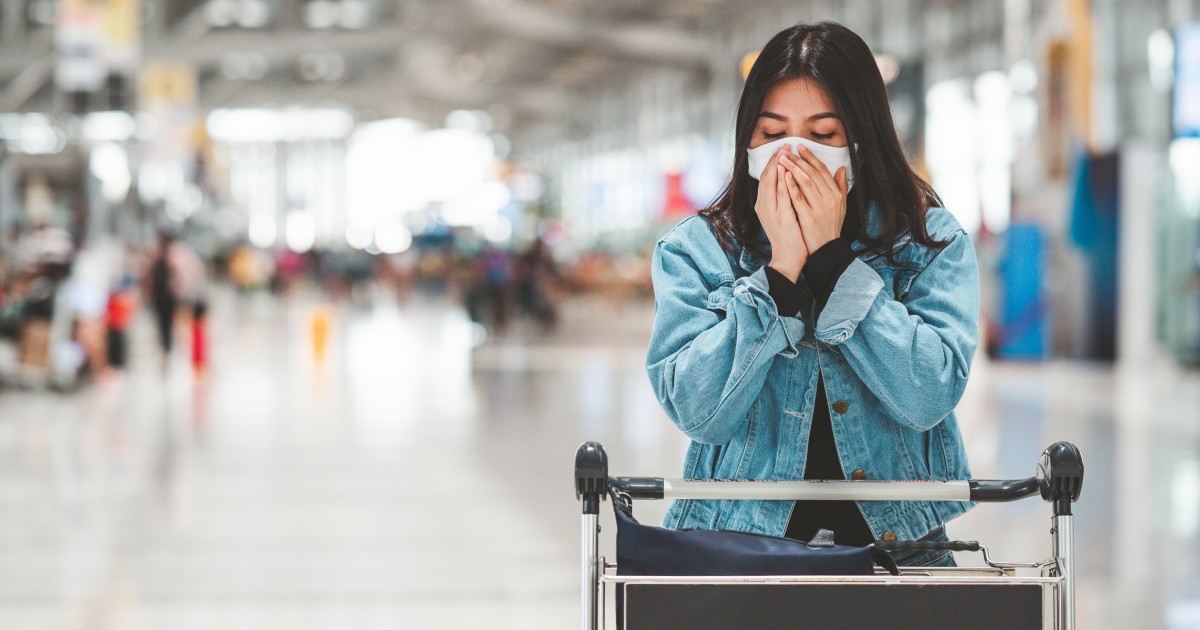As cold and flu season ramps up and holiday travel begins, many people reach for vitamin C supplements to help prevent getting sick on the road. It’s a common belief that a mega-dose of vitamin C will shield you from the germs circulating at airports, train stations and packed holiday gatherings.
But here’s the truth that might surprise frequent fliers: Vitamin C supplements won’t actually give your immune system a major boost, research shows.
As a registered dietitian, I weighed in on this topic in the Holiday Helper guided audio series in the Start TODAY app. In the episode, I shared practical tips to minimize the impact travel has on your physical and mental health, from staying hydrated to choosing the best airport snacks.
One big question we tackled: Will vitamin C supplements actually keep you healthy on a plane?
Download the Start TODAY app to listen to the full episode now.
What Role Does Vitamin C Play in Immune Health?
Vitamin C plays a crucial role in the immune system. It helps your body produce natural fighter cells that work to combat illness once a virus or bacteria has entered your system. But vitamin C does most of its work after the body has already been infected, which means taking large amounts before or during a trip likely won’t stop a cold or virus from getting into your body.
And those mega-doses probably aren’t doing what you think. Vitamin C is a water-soluble vitamin, meaning your body takes what it needs and flushes out the rest. At a moderate intake of 30-180 milligrams of vitamin C per day, the body only absorbs about 70-90%. At doses above 1,000 milligrams per day, absorption drops to less than 50%, and the rest leaves the body in the urine.
In other words, if a supplement contains 200% or 300% of your daily requirement (90 milligrams for men and 75 for women), you’re peeing out most of it.
That said, some research has shown that consistent vitamin C supplementation may reduce the duration and severity of cold symptoms. Another study suggests supplementation is most effective at preventing colds in people who are under physical stress (like marathon runners) or with a vitamin C deficiency.
What Actually Prevents You From Getting Sick?
Whether it’s the flu, a cold or another virus, infection usually happens when contaminated droplets reach your eyes, nose or mouth. Some viruses are airborne, while others spread through touch. But across the board, the best protection is still basic hygiene, especially handwashing, wearing a mask and vaccination. It’s not too late to get your flu shot or updated COVID vaccine ahead of the inevitable rise in cases of both viruses.
If a virus does enter your system, vitamin C may help you fight it off, but you don’t need more than about 90 milligrams per day, according to the National Institutes of Health.
Research also points to zinc as a nutrient that may shorten the duration of a virus. Zinc lozenges won’t perform miracles, but they might help you feel better a day or so sooner than you would otherwise.
Although it sounds boring, your best defense to fight a cold fast still basic habits that should make up the foundation of your health routine: eating a well-balanced diet rich in vitamins, minerals and antioxidants, staying hydrated and getting good.
Instead of spending your money on expensive vitamin C supplements, try eating more naturally vitamin C–rich fruits, like oranges, strawberries or kiwi.
And again, if your goal is to avoid illness while traveling, wearing a mask, especially an N95 or KN95, can help prevent transmission of respiratory viruses, according to the U.S. Centers for Disease Control and Prevention.

